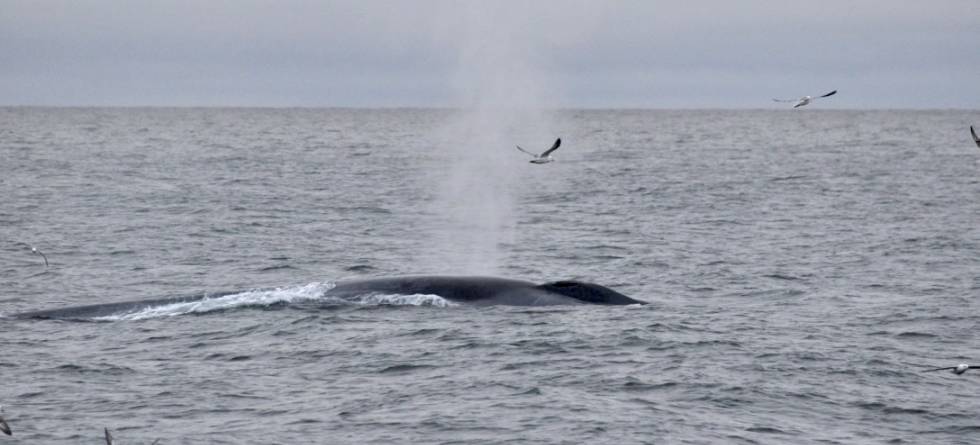Climatic warming of the world oceans, ocean acidification and deoxygenation, lead to the crossing of tipping points and to abrupt changes in the ocean with high impact and with high probability.
Tipping points can already be passed for moderate global warming (1,5-2 degrees) and are expected to be more critical and widespread for strong warming. For ecosystems, sudden regime shifts are expected to happen when certain thresholds in warming, oxygen availability, and acidification are reached.
At a tipping point, fast changes of a complex system - such as the ocean or parts of it – occur, where the system switches from one equilibrium to a new equilibrium. For example, extreme events, such as marine heatwaves with higher peak temperatures under human-made climate change, can push ecosystems from one stable state to another. A recovery of the original state may be impossible or can only be achieved with strong negative forcing.
“The abrupt high-probability and high-impact changes need to be dealt with as seriously as singular catastrophic events linked with climatic tipping points”, says first author Prof Christoph Heinze.
In the deep-sea, even small but persistent changes in environmental conditions can be detrimental to deep-sea organisms that are used to a very narrow bandwidth of variations in living conditions.
Since the beginning of the industrial revolution, the oceans have taken up 30 to 40% of the total carbon dioxide (CO2) and 93% of the heat added to the atmosphere through human activities.
For ecosystems, such changes may lead to sudden regime shifts when certain thresholds in warming, oxygen availability, and acidification are reached.
“The abrupt high-probability and high impact changes need to be dealt with as seriously as singular catastrophic events linked with climatic tipping points”, says first author Prof Christoph Heinze.
In the deep-sea, even small but persistent changes in environmental conditions can be detrimental to deep-sea organisms that are used to a very narrow bandwidth of variations in living conditions.
Since the beginning of the industrial revolution, the oceans have taken up 30 to 40% of the total carbon dioxide (CO2) and 93% of the heat added to the atmosphere through human activities.
“The ocean as a CO2 and heat sink does a critical service to humankind under ongoing climate change – but there is a high price to pay for this, because environmental conditions change persistently as a consequence”, says Heinze.
Heinze is project director of the EU H2020 project COMFORT, that carries out research on coupled physical-chemical-ecological ocean tipping points.
Damage limitation can be provided through a number of promising mitigation measures including a blueprint for respective ocean research and stakeholder action. Key will be effective greenhouse gas emission reductions and seamless interagency management to achieve them.
Reference:
Christoph Heinze, Thorsten Blenckner, Helena Martins, Dagmara Rusiecka, Ralf Döscher, Marion Gehlen, Nicolas Gruber, Elisabeth Holland, Øystein Hov, Fortunat Joos, John Brian Robin Matthews, Rolf Rødven, and Simon Wilson: The quiet crossing of ocean tipping points,
Proceedings of the National Academy of Sciences of the United States of America, Perspective.
“This project has received funding from the European Union’s Horizon 2020 research and innovation programme under grant agreement No 820989 (project COMFORT, Our common future ocean in the Earth system – quantifying coupled cycles of carbon, oxygen, and nutrients for determining and achieving safe operating spaces with respect to tipping points). The work reflects only the author’s/authors’ view; the European Commission and their executive agency are not responsible for any use that may be made of the information the work contains.”


